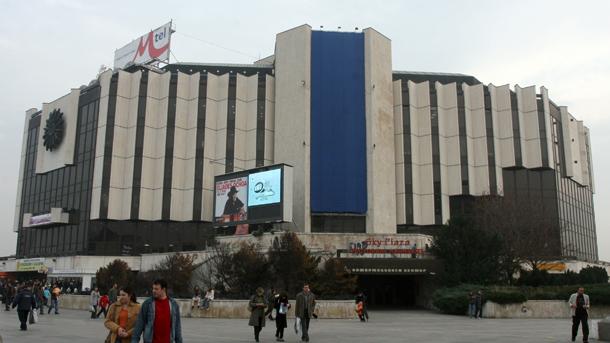
More than 300 light industry firms and companies will take part in it. The aim of the trade exhibition is to offer a supporting hand to Bulgarian producers who will have at their disposal one week to show their production.
“In order for a firm to survive, especially in a period of crisis, it must give signals that it exists. A national trade exhibition such as “Made in Bulgaria”, which is being held in the center of the capital, gives this opportunity”, says Tsvetan Simeonov, Chairman of the Bulgarian Chamber of Commerce and Industry, which is one of the organizers of “Made in Bulgaria”. About 27 per cent of the presented firms and companies are from the textile industry and about 14 per cent – from the fur industry. Present also are producers of sports attire, jewelry, perfumes and cosmetics. According to Yordanka Chavdarova – manager of “Business centre Bulgaria” – the second organizer of the forum – the global economic and financial crises reflects on the number of participating firms and companies. This time they are 20 per cent less in comparison with 2008 and if then a given firm or company took two or three stands now they use only one.
“In a period of crisis, when the consumers are under stress and tend to save and be practical rather than spend money, we are trying to give the firms and companies an opportunity show their best and newest production. This will also be an opportunity for the clients to explore the spacious halls of the National Palace of Culture and leisurely choose and buy presents for the forthcoming Christmas and New Year holidays. The National Trade Exhibition of Producers “Made in Bulgaria” also gives an opportunity to different shops to contract whole collections for next year. Retail dealers here get a chance to see the newest production of a given firm or company. We strive to attract the most stable and innovative producers and sincerely hope that in half an year things will change for the better”, says Yordanka Chavdarova.
She stresses on the fact that there is almost no branch in industry, which has not suffered the effects of the crisis. A survey of the consulting company “BusinessForSale.BG” shows that two-thirds of the actively working firms and companies in Bulgaria are undergoing considerable hardships in their work and cannot boast that they have regular financial profits. The effect of the crisis is expressed mainly in the reduced buying activity of the clients as well as the decrease of foreign investments. Because of the crisis and in the attempt to attract more clients during the National Trade Exhibition “Made in Bulgaria” the producers tend to lower the prices of their articles considerably, to make tempting offers and to propose various attractive ways of payment.
English version: Ivaila Bozhanova
Less than 100 days remain until Bulgaria joins the eurozone, and this is another reason to talk about the incomes of people in Bulgaria, about the Bulgarian economy, about foreign investments and about the domestic labour market which reacts the..
At the end of September, with a little over three months to go until the Rubicon in Bulgarian public finance - 1 January, 2026, when the country will officially leave the currency board and adopt the single European currency, the euro – issues..
Bulgaria is among the most dynamic and promising economies in Southeastern Europe, said Prime Minister Rosen Zhelyazkov. He participated in a luncheon roundtable discussion in New York organized by the Delphi Economic Forum and the Business Council..

+359 2 9336 661
